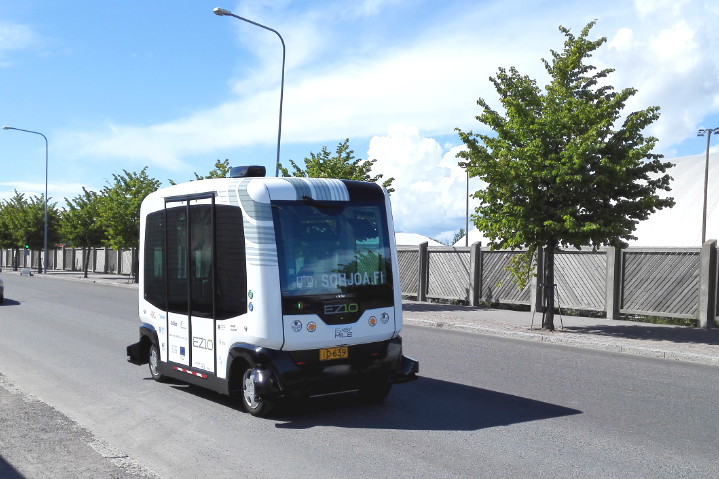
We’re talking self-driving buses, with a couple of its specially designed box-shaped vehicles now tootling along regular roads in the country’s capital city of Helsinki.
It’s part of a month-long trial, but the fact that they’re now allowed to mix with regular traffic suggests it may not be too long before more of the buses hit the city’s streets as part of a permanent program.
“This is actually a really big deal right now,” project leader Harri Santamala told local media. “There’s no more than a handful of these kinds of street traffic trials taking place [around the world], if that.”
Helsinki’s new electric buses are the work of France-based EasyMile, which itself is the result of a joint venture between two other French companies – automaker Ligier and robotics firm Robosoft.
Santamala added that the new vehicle, which can carry up to 10 passengers, could one day be used to supplement existing public transportation services, acting as a feeder service for busier routes. However, the vehicle’s somewhat leisurely top speed – just 6 mph (9.6 kmh) – suggests passengers will have to be cool about being overtaken by the occasional jogger heading along the same route.
Of course, Finland isn’t the only country interested in rolling out driverless buses. A number of countries are developing systems similar to those used by a growing number of self-driving car projects, among them China which last year started testing a full-size autonomous bus on regular roads.
Also in China, internet giant Baidu is reportedly planning to begin mass production of driverless buses within five years, while back in the U.S., Tesla CEO Elon Musk recently hinted that, alongside his ambitious car, space, and Hyperloop projects, a more modest driverless bus project could also be on the cards.


